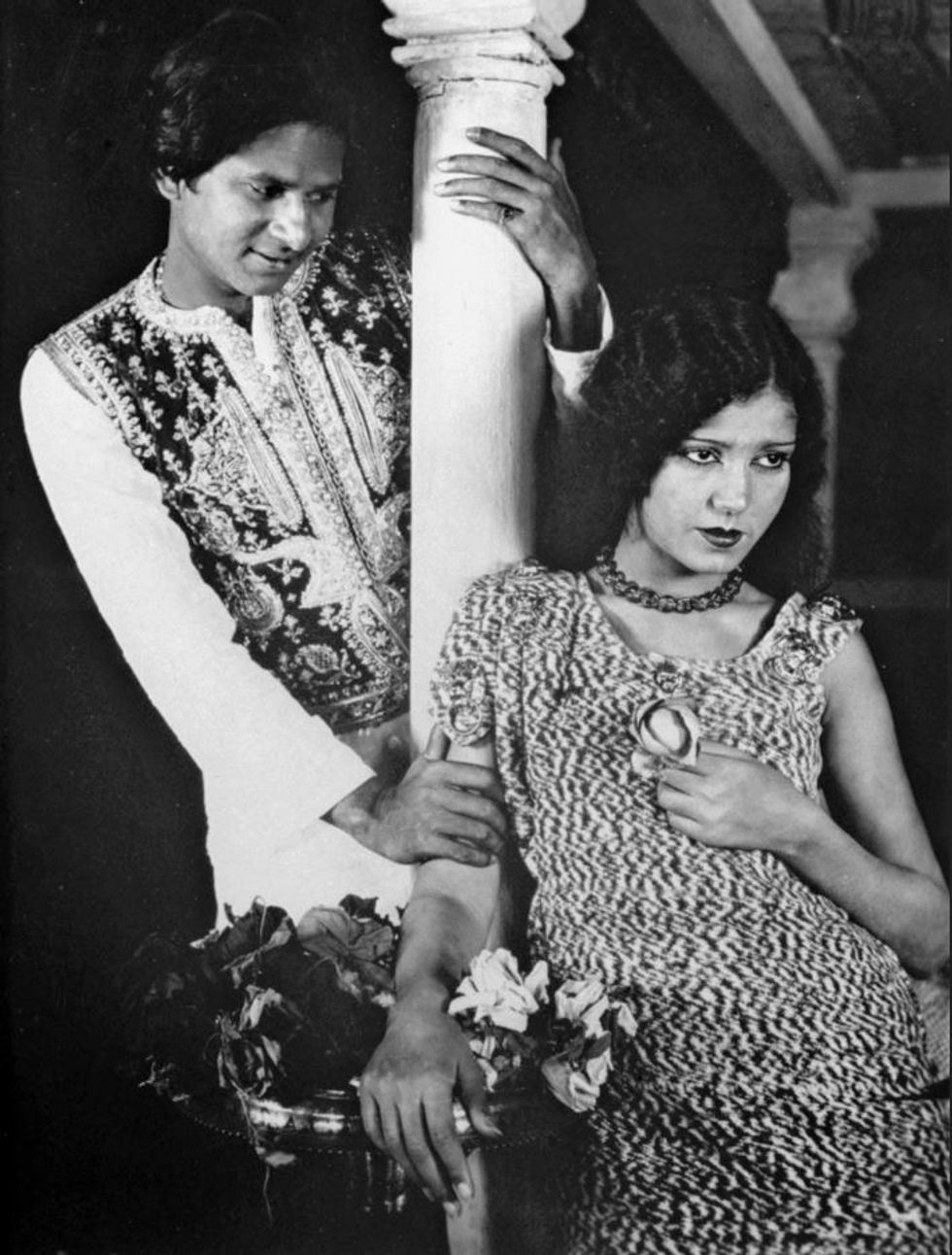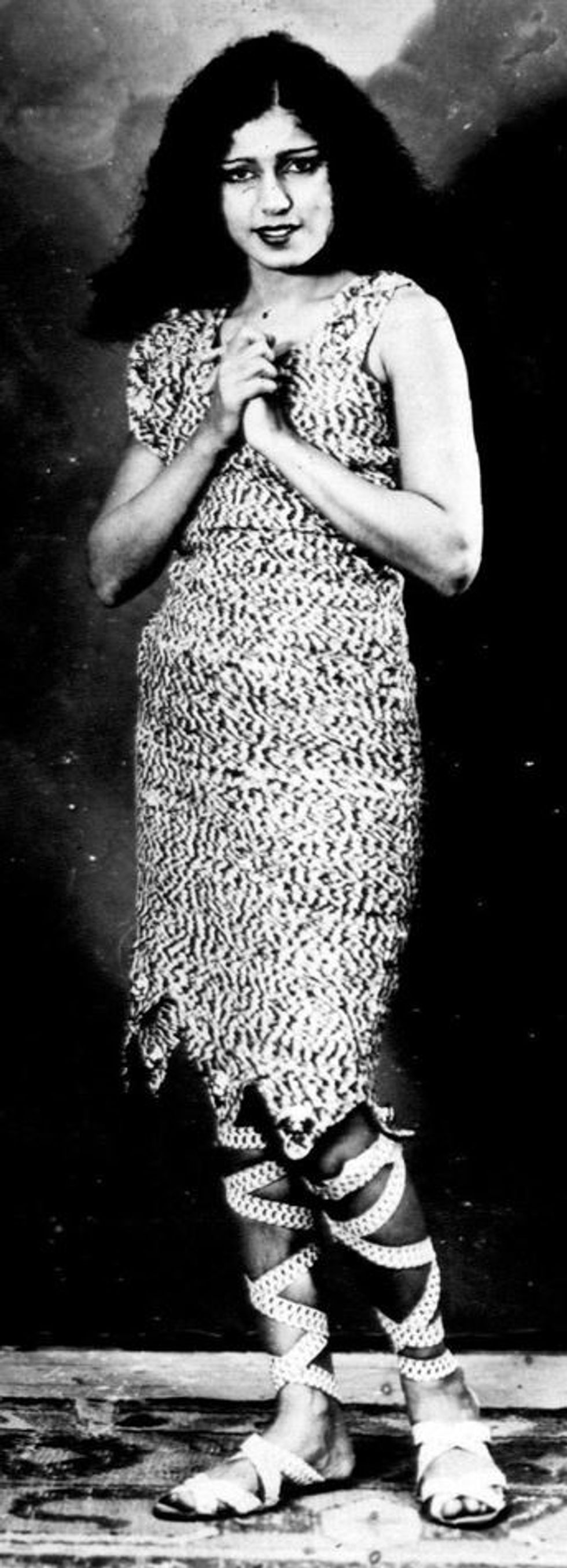THE greatest difficulty in the earliest days of Indian cinema was to get local women to act in films. For India’s first film Raja Harishchandra (1913), producer/director Dada Saheb Phalke had to get a man in a sari (Salunke) to play the leading lady.
Although women slowly started to step in front of the camera, until the 1920s it was difficult to find an icon that would inspire a generation. Jewish telephone operator Ruby Myers was rechristened as Sulochana and became the first female superstar during the silent era. But it was an actress named Zubeida who really broke the shackles for Indian women and inspired them to take up acting as a profession.
Unlike others who came from humble backgrounds and often acted out of necessity, she was from a royal lineage and showed that it wasn’t disreputable for women to become actresses. Through an amazing set of circumstances, she ended up making history in the most remarkable way. To mark her death anniversary, which falls on September 21, Eastern Eye decided to tell the story of a real life princess, who became a Bollywood queen.
Zubeida was born in 1911, two years before the first Indian film was released, in Surat, Gujarat, to Nawab Sidi Ibrahim Muhammad Yakut Khan III of Sachin State. Her mother Fatima Begum was a stage actress, who would go on to become one of the first female directors in Bollywood. She had two other daughters, Sultana and Shehzadi, who also would become famous actresses.

Interestingly, no record of an official marriage contract was found, or that the Nawab had officially accepted his daughters. Not having these constraints perhaps enabled Fatima to enter Hindi cinema as an actress with silent film Veer Abhimanyu (1922) and this helped open doors for other Indian women, including her three daughters. By the end of the 1920s she was directing films, despite it being a male dominated domain, which it still is today.
It was Zubeida who had the outstanding star quality. She started acting in silent films as a 12-year old in supporting roles, including with her mother and sisters. In 1925, the talented teenager had nine film releases and the following year she starred in Bulbul-e-Paristan, which was directed by her mother.
Although 1927 films like Laila Majnu and Sacrifice showed off her star potential, Zubeida was overshadowed by superstar actress Sulochana, who was ruling Indian cinema at the time. Just when it looked like she wouldn’t make a significant mark, an extraordinary chain of events gave her a history making opportunity, which would leave a permanent mark on the cinema landscape.
When the first talkie Alam Ara (1931) was being made, producer/director Ardeshir Irani wanted to cast superstar actress Sulochana, but she wasn’t able to speak the Hindi language that was required. Irani needed a big name for the movie, so fought a legal battle, with the help of lawyer and future Pakistan founder Muhammad Ali Jinnah to get Master Vithal out of his contract with a rival studio to cast him.
After a search, Zubeida was cast in the title role of Alam Ara. But when production started, Irani realised that Vithal, like Sulochana, couldn’t speak Hindi properly either, but it was too late, and a lot of money had been spent. So, the screenplay was rewritten, with his character being placed into a coma for the majority of the movie. All of this meant that Zubeida dominated the first Indian talkie, which smashed every record and became a runaway success.
The musical set the blueprint for Bollywood and established her as a huge star. Her rival Sulochana had to take a hiatus to learn the language, but she would never recapture her glory days. After starring in a string of successful films, Zubeida would go on to set up the production house Mahalakshmi Movietone with filmmaker Nanubhai Vakil in 1934 and had box-office hits like Gul-e-Sonobar (1934) and Rasik-e-Laila (1934). One of her standout projects was starring in Devdas (1937), a big-screen adaptation of the iconic novel and one of the first films produced in the Assamese language.

She gradually slowed down on the acting front, choosing quality ahead of quantity and made her final appearance in 1949 film Nirdosh Abla. While her mother was never officially recognised by her royal in-laws, Zubeida married Maharaj Narsingir Dhanrajgir Gyan Bahadur of Hyderabad. Her granddaughter Rhea Pillai would later become an actress.
Zubeida spent her last years at the family’s Bombay palace and died on September 21, 1988.
Cary Rajinder Sawhney MBE, director and founder of London Indian Film Festival said: “Pioneering Gujarati actress Zubeida will always be one of the icons of Hindi cinema and one of the very few actors to transition from silent cinema to the talkies, which included her role in what is commonly considered India’s first talkie Alam Ara – her greatest hit and a huge sensation in its day.
“It followed only a few years after Hollywood’s first talkie The Jazz Singer (1927). Sadly only a few fragments of Alam Ara and Zubeida’s many other films remain, but it set a template for the Bollywood musical, which continues today.”






 Naeli and the secret song
Naeli and the secret song








 Jamie Lloyd’s Evita with Rachel Zegler set for Broadway after London triumphInstagram/
Jamie Lloyd’s Evita with Rachel Zegler set for Broadway after London triumphInstagram/
 A compelling premise, layered and unpredictable charactersAMG
A compelling premise, layered and unpredictable charactersAMG Anyone who enjoys a gripping story with a diverse cast and unexpected twistsHarperFiction
Anyone who enjoys a gripping story with a diverse cast and unexpected twistsHarperFiction
 The Story Teller by Ley Roberts
The Story Teller by Ley Roberts Summer Exhibition coordinator Farshid Moussavi, with Royal Academy director of exhibitions Andrea Tarsia in the background
Summer Exhibition coordinator Farshid Moussavi, with Royal Academy director of exhibitions Andrea Tarsia in the background An installation by Ryan Gander
An installation by Ryan Gander A sectional model of DY Patil University Centre of Excellence, Mumbai, by Spencer de Grey
A sectional model of DY Patil University Centre of Excellence, Mumbai, by Spencer de Grey Rituals and Identity and Theatre of Resistance by Arinjoy Sen
Rituals and Identity and Theatre of Resistance by Arinjoy Sen
 An explosive new play that fuses biting satire, history and heartfelt storytellingPleasance
An explosive new play that fuses biting satire, history and heartfelt storytellingPleasance